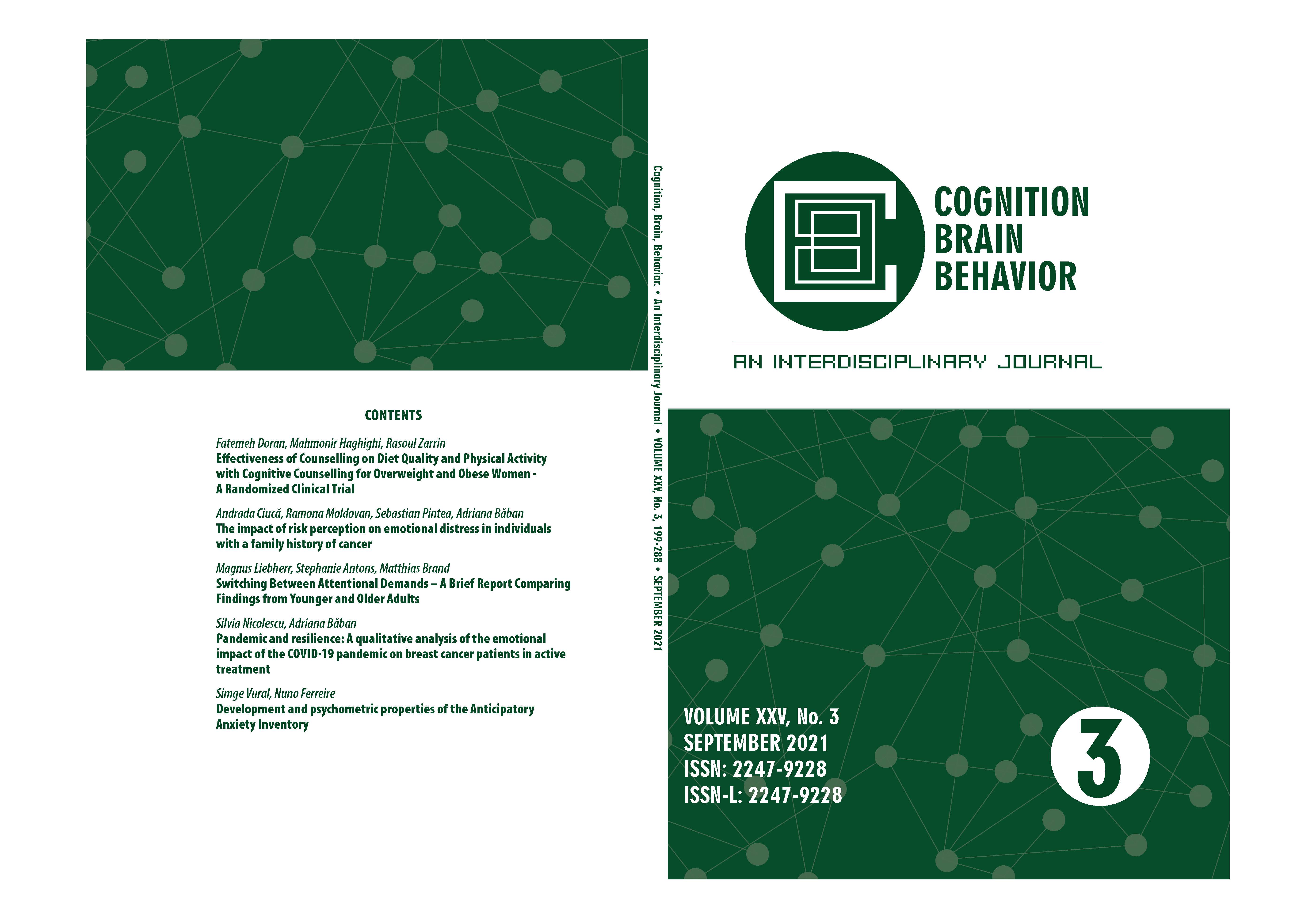Switching Between Attentional Demands – A Brief Report Comparing Findings from Younger and Older Adults
Switching Between Attentional Demands – A Brief Report Comparing Findings from Younger and Older Adults
Author(s): Magnus Liebherr, Stephanie Antons, Matthias BrandSubject(s): Cognitive Psychology, Methodology and research technology, Gerontology
Published by: Editura Asociației de Științe Cognitive din România (ASCR)
Keywords: task-switching; attention; aging; SwAD-task;
Summary/Abstract: The increasing relevance to adapt quickly to changes in the environment is contrasted by an inverted U-shaped curve of task-switching abilities over the lifespan. While previous studies most commonly focused on switching between rules, modalities, and attributes, the process of switching between different attentional demands is somehow neglected. Therefore, the present study aims to fill this gap by applying a recently introduced paradigm on switching between attentional demands to younger and older adults. Within the present study, 116 younger adults (age: min- max: 18-30, M=22.31 years, SD=3.17; 85 women) and 93 older adults (age: min- max: 60-89, M=68.29 years, SD=6.18; 15 women) completed the Switching Attentional Demands-task (SwAD-task). The task enables to quantify single-task performance of selective and divided attention, but more important the ability of switching between these demands. Findings indicate faster response times in selective attention than divided attention for both groups. Furthermore, older adults showed longer response times in selective attention, divided attention, as well as switching attention, compared to their younger counterparts. Age-related changes are discussed by considering the frontal ageing hypothesis, processing-speed theory, as well as common factor theories of cognitive ageing. Furthermore, previous neurophysiological findings are taken into account to explain findings at hand.
Journal: Cognition, Brain, Behavior. An Interdisciplinary Journal
- Issue Year: XXV/2021
- Issue No: 3
- Page Range: 233-241
- Page Count: 10
- Language: English
- Content File-PDF

